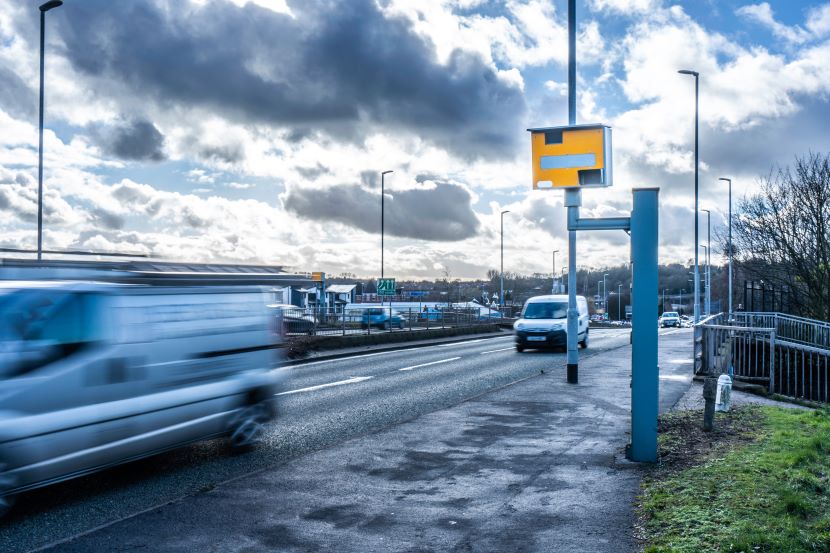If you've been caught speeding, rather than receiving a fine and points on your licence, you may be invited to attend a speed awareness course. But what actually happens at a speed awareness course? And how much is it going to set you back?
Here’s what to expect.

What is a speed awareness course?
If you've been caught speeding, speed awareness courses are sometimes offered as an alternative to a fine and points on your licence. You'll receive an invitation to book a course in the post.
These are effectively theory lessons, which teach attendants about the dangers of speeding. The course tends to last about 4 hours.
These driver improvement courses aren't mandatory, and you can opt to take the fine and points instead. But there are several reasons why taking the course could work out better in the long run.
How do I book a speed awareness course?
To book a speed awareness course, you need:
-
Your driving licence
-
The letter sent to you by the police
-
Your payment details
Once you’ve got these, follow these steps:
-
Enter the reference number and pin that should be on your course offer letter that the police sent to you.
-
Enter the personal details, like your name, address, email and your driving licence number.
-
Select whether you’d like to continue as a guest or make an account and create a password. You’ll then be able to log in to your account and access your course, or manage your personal details
-
To book a course, go to 'access my courses' and you’ll be able to choose between a physical course and a virtual course. You’ll then be given a list of course providers.
-
Select a course and you’ll go to the provider’s website. Here you can choose a convenient date and time. You can choose to take it during the day, in the evening or at the weekend. If you’re attending a course in person, you can also choose the best location for you
-
Once you’ve paid, you should get a confirmation email. You can find more information on your course, including your course provider’s contact information in the 'access my course' section of the account. If you have any issues, you should contact your course provider.
Attending a virtual speed awareness course
If you’re attending a virtual course, you need a computer, laptop, tablet or mobile that has:
-
Internet access with a stable internet connection
-
A webcam
-
Microphone
-
Speakers or headphones
-
A fully-charged battery that lasts for 3 hours, or access to power
-
Zoom or Microsoft Teams - you don’t have to download these, you can use them in your browser
-
Your driving licence
-
A space where you’re not disturbed
Am I eligible for a speed awareness course?
You’re only eligible for a speed awareness course if you’ve broken the speed limit by a certain amount of miles per hour. Here are the minimum and maximum speeds where you’re eligible for one of these driver improvement courses:
| Speed limit | Minimum speed | Maximum speed |
|---|---|---|
|
20 mph
|
24 mph
|
31 mph
|
|
30 mph
|
35 mph
|
42 mph
|
|
40 mph
|
46 mph
|
53 mph
|
|
50 mph
|
57 mph
|
64 mph
|
|
60 mph
|
68 mph
|
75 mph
|
|
70 mph
|
79 mph
|
86 mph
|
This is at the discretion of the police force though. If you're caught speeding at all, they're within their rights to give you the fine and the penalty points on your driving licence. And speeds above the 'maximum speed' usually don't have the option of a speed awareness course.
There are other criteria that make you more or less eligible for a speed awareness course. But these vary depending on your local police force.
How much is a speed awareness course?
It can cost between £80 and £100 to go on a speed awareness course. The price can vary depending on where you’re located and which provider you choose. Typically, online driver improvement courses are a bit cheaper, while in-person sessions might set you back a little more.
What happens on a speed awareness course?
The course is designed to change your attitude towards breaking the speed limit. The intention is to make you more mindful of your speed and the impact this can have on other road users.
Most courses encourage participation and interaction to keep you interested. You don’t have to take any tests, and you don't have to do any actual driving. As long as you complete the workshop to the trainer’s satisfaction - that means listening and participating - you’ve passed the course.
The course itself should last around 4 hours, though this may vary depending on where you are.
Most speed awareness courses, whether online or in person, have around 20 people attending and 2 instructors.
You need to bring your driving licence along with you. You show this to your instructor privately before the course begins - this applies virtually too.
If you don’t have it, you might have to show 2 forms of ID. If you don’t bring any ID with you, you might not be allowed to take the course.
The courses are usually run by organisations on behalf of the police, like the National Driver Offender Retraining Scheme (NDORS).
When you finish, the course provider gets in touch with the police and tells them you’ve completed the course.
How often can I take a speed awareness course?
You can take a speed awareness course once every 3 years.
If you’re caught speeding again within that time, you have to accept points on your driving licence and/or a fine.
What happens if I'm late or can't attend the speed awareness course?
You might be able to rebook your course in advance if you can’t make the course date. You can do this on your UKROEd account.
If you’re late, you can't enter the course once registration has started. You might also be charged the course fee again.
If you miss the course you might also be charged an extra fee, and you’ll have to rebook if you want to escape points and a fine. You can go to your account to find out if you can rebook your course.
If you don’t complete the course, the course instructor will inform the police and they’ll contact you to explain what you do next. If it’s within the enforcement period (this is on your letter) and you haven’t paid the fixed penalty or completed a course, you may have to go to court.
Why should I take a speed awareness course instead of accepting the points?
Some people may not wish to attend the course. You need to pay for the course yourself, and it's time-consuming - usually requiring taking half a day off work.
But in terms of cost, taking the course can work out better in the long run.
A speeding conviction on your licence is likely to increase your car insurance costs. Taking a speed awareness course should avoid this.
And while you may only receive 3 penalty points for the speeding offence, don't forget that you'll lose your licence if you gather 12 points. From this point of view, attending the course may be less of a risk.
Louise Thomas, car insurance expert, comments:
What our motor insurance expert says
"Car insurance with an SP30 speeding conviction costs £942, on average*. With that in mind, I'd always recommend taking a speed awareness course if you're eligible for one.
"Because you don't get points on your licence, you're less likely to see your car insurance costs increase with a speed awareness course. But if your car insurance company asks about speed awareness courses, you have to tell them. And if they do ask, they may use it as a factor when working out your insurance costs.
"There's also a good chance that taking a speed awareness course could make you a more mindful driver. So you're less likely to speed in future."

Do I need to tell my insurer that I've taken a speed awareness course?
Not unless they ask you. There’s inconsistency between insurers - some might ask if you’ve taken a speed awareness course, others might not.
If they ask, or you mention it, the insurer might increase your insurance price. If they ask, you have to tell them. Otherwise your insurance might be invalid.
But a speed awareness course isn’t a driving conviction, and according to The National Driver Offender Retraining Scheme (NDORS) it shouldn’t be treated as one.
According to NDORS, you only have to give your insurer the information it asks for. This is thanks to a rule change in 2013. Before this, you’d have to volunteer any information that could be relevant to your policy.
When you get a quote with Confused.com, we don't ask if you've taken a speed awareness course. We only ask about driving convictions.
*Q3 2024.


